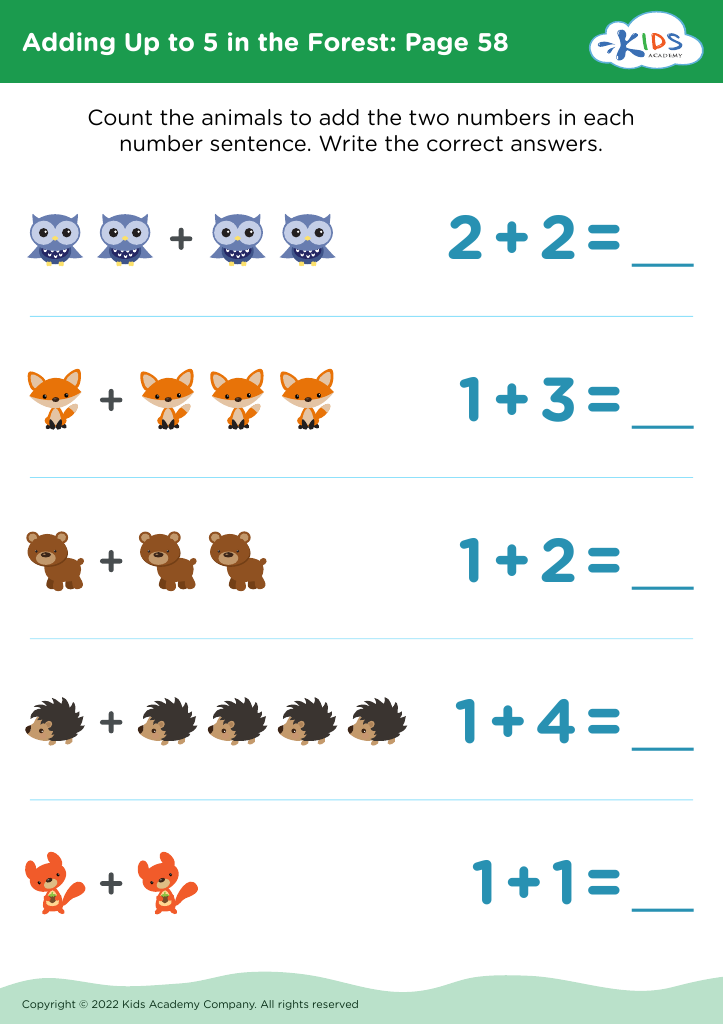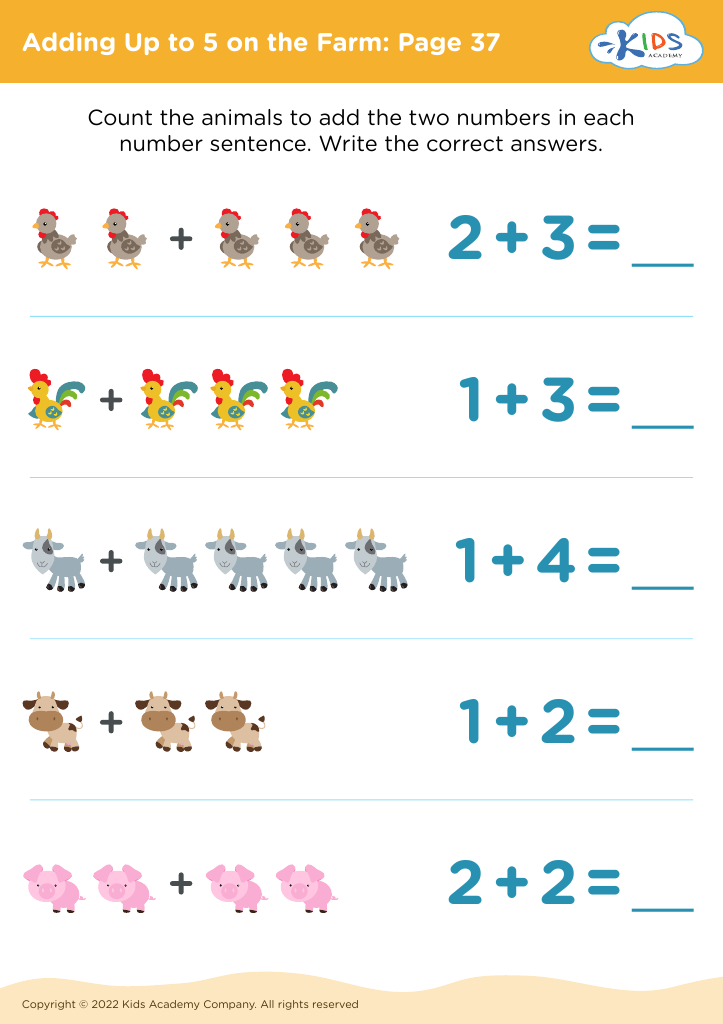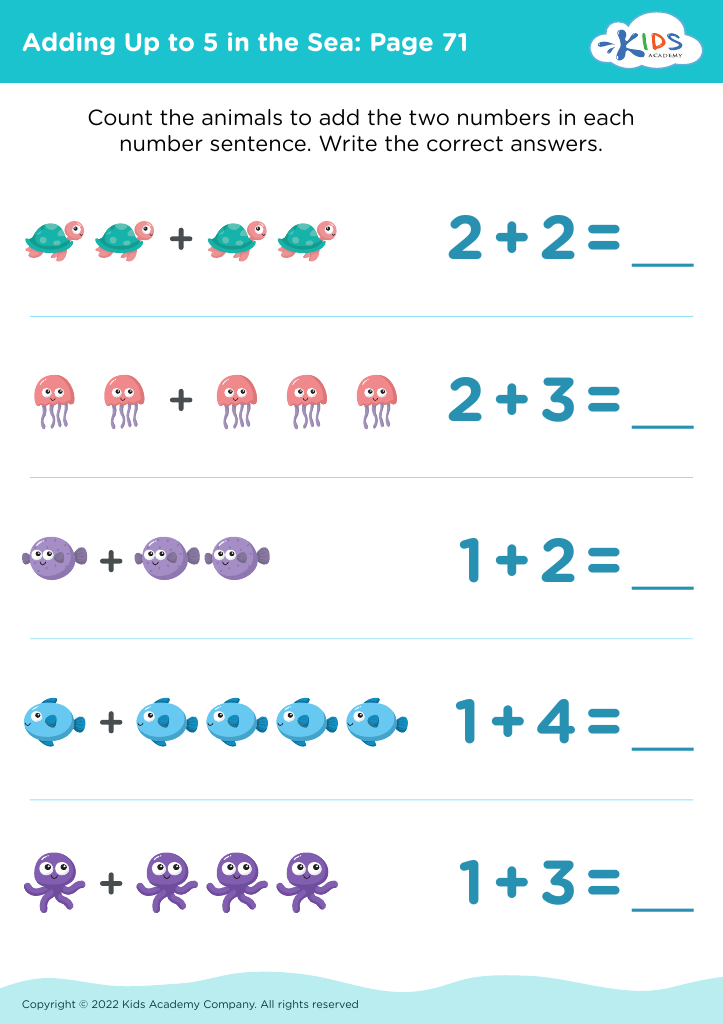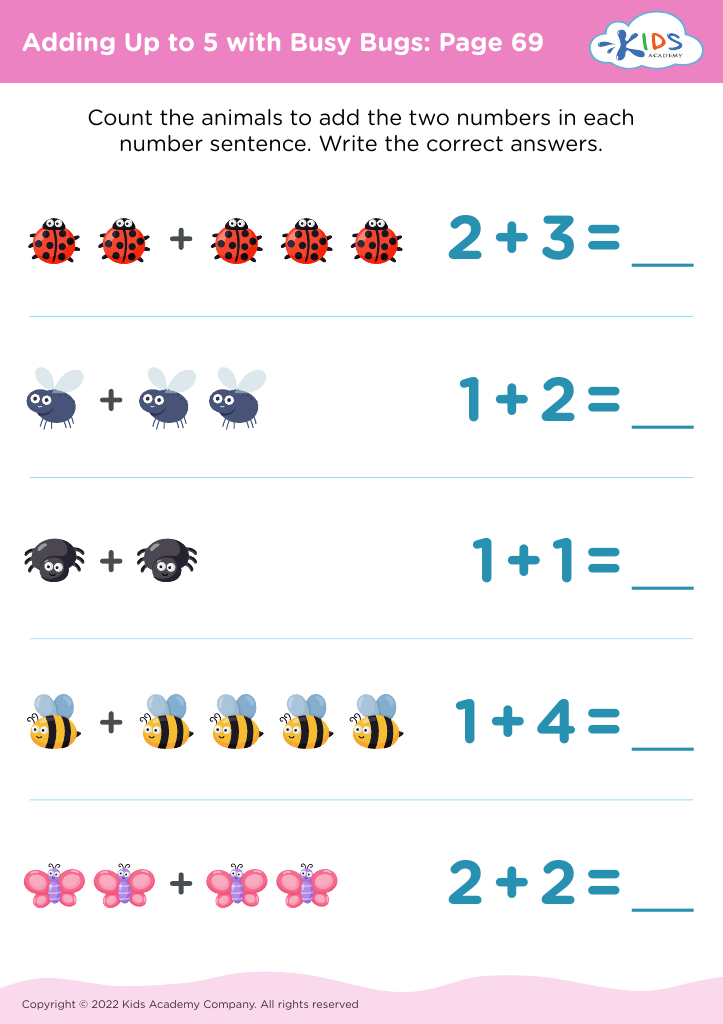Understanding numeracy Addition & Subtraction Worksheets for 3-Year-Olds
4 filtered results
-
From - To
Unlock your child's mathematical potential with our "Understanding Numeracy: Addition & Subtraction Worksheets for 3-Year-Olds." Designed specifically for preschoolers, these engaging worksheets introduce foundational concepts of addition and subtraction in a fun and interactive manner. Each activity fosters essential cognitive skills, helping little ones recognize numbers and develop logical thinking. With colorful illustrations and age-appropriate exercises, children will enjoy learning basic math while enhancing their fine motor skills. Perfect for home or classroom use, our worksheets lay a strong groundwork for early numeracy, ensuring that your child builds confidence and enthusiasm for math as they progress. Start exploring today!
Understanding numeracy, specifically addition and subtraction, is crucial for three-year-olds as it lays the foundation for their overall mathematical development. At this age, children are naturally curious and eager to learn, making it an ideal time to introduce these concepts through engaging and playful methods. When parents and teachers prioritize numeracy, they empower children to develop essential skills that will benefit them academically and socially.
Early exposure to addition and subtraction helps children recognize patterns and relationships in numbers, enhancing problem-solving capabilities. This understanding supports cognitive development and lays a strong groundwork for more complex mathematical concepts encountered later in school. Furthermore, mastering these early numeracy skills boosts children's confidence and fosters a positive attitude toward learning.
In addition, incorporating numeracy in daily activities encourages practical application, making learning relevant and enjoyable. For instance, counting toys during playtime or sharing snacks can transform ordinary moments into valuable learning experiences. By emphasizing the importance of addition and subtraction at such a young age, parents and teachers can actively contribute to a child's mathematical literacy, equipping them with the tools needed for future academic success and lifelong learning.





















